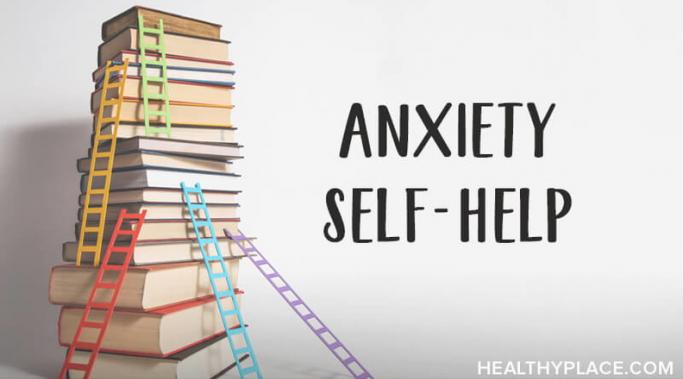Blogs
Victim blaming is alive and well. Last week, actress and model Chloe Dykstra posted a personal essay via Medium, detailing the emotional and sexual abuse of an ex-boyfriend. She didn't name the man explicitly, but it became clear to fans and the media that she was talking about Chris Hardwick of Nerdist fame, with whom she had a three-year relationship that ended in 2014. Hardwick has denied all culpability for the abuse, claiming he was "blindsided" and "heartbroken" by Chloe's essay. Let's look closer at the Chloe Dykstra/Chris Hardwick story, and why, in the age of #metoo, it's so easy for abusers, and the media, to automatically blame the victim.
Bipolar medications and their effect on creativity. It’s a controversial subject to the point where sometimes people with bipolar disorder quit their medications; maintaining they have caused them to lose their creativity. I believe this is a significant concern for many people living with bipolar disorder.
What should you watch when you're depressed? How about what you shouldn't watch? Have you ever watched a show or read something that made you feel offended, sad, or uncomfortable? That could be a warning sign that you are consuming messages that are toxic for your emotional health. Read this article for tips on how to monitor media consumption so you can figure out what not to watch when you're depressed.
I've experienced suicidal thoughts with borderline personality disorder (BPD), so I thought I'd share my experience and some facts about suicide and BPD. The topic of suicide has received a large amount of attention in the media as of late with celebrity suicides. With the death of Kate Spade and Anthony Bourdain, it’s brought up old experiences and feelings about my own history as a woman living with borderline personality disorder. While I don’t feel this way today, I am no stranger to the feeling of not wanting to be alive. Self-harm, suicide attempts and suicidal thoughts are a part of living with borderline personality disorder. They are a distinguishing symptom when making this diagnosis. In the vein of opening up a conversation about suicide awareness, I’m going to share some important suicide facts and personal experience about suicidal thoughts and borderline personality disorder. Most importantly, I will share my hope.
Challenging anxious thoughts is more difficult when we have a strong gut reaction – the sensation that something is wrong and that we need to act to stop it. When there is no concrete threat, our minds tend to conjure myriad potential threats, generating frightening thoughts that feel indisputably true. However, these anxious thoughts are rarely accurate and lead us down a rabbit hole of anxious thinking that is hard to interrupt. I’ve found from my own experiences with anxiety that just challenging the accuracy of my thoughts isn’t effective because they still feel accurate to me. Instead, I use an approach that challenges the validity of my anxious thoughts and improves my emotional state. Here’s one process for challenging anxious thoughts I’ve learned for working through them effectively.
In Kanye West’s new album, "Ye," he discloses that he’s bipolar and says it’s a superpower. Does this diagnosis explain his antics and what he should do with his fame
Alter switching and dissociative identity disorder (DID) are interdependent. The term "'switching" means simply to change, but, in reference to DID, it means to change a part, an alter, or a headmate, as they are called. Everyone has parts that comprise his or her personality. You might have remarked before, "Part of me really wants to improve my health." For someone to reference a single part of their personality is normal, but for those of us with DID, we experience more extreme parts of ourselves that have their own thoughts, opinions, beliefs, wishes, needs, etc. The switching of these parts is difficult, jarring, and disconcerting. If you have DID or know someone with DID, it is important to understand the signs of when someone with dissociative identity disorder is switching alters and what you can do.
I'm having suicidal thoughts less often now. Even though I’ve written more than a couple of articles about feeling suicidal with schizoaffective disorder, lately, I’m happy to say, I have gotten beyond feeling that way. I’m not exactly sure what is making things better—for a long time, it was so pervasive. But I'm having suicidal thoughts less often, and I have some insights that I would like to share with you as to why I haven’t been feeling this painful schizoaffective symptom.
Believe it or not, you can do things to calm your anxious mind in less than five minutes. Even when anxiety is intense, even when your fear is heightened or you feel on the verge of panic, you have the power to take action to stop anxiety in its tracks. The beauty of these actions lies in their simplicity. You don't have to remember fancy techniques, nor do you have to have special equipment or props. You only need yourself, your anxiety, and a desire to be calm quickly. If you're ready, here are five things to do to calm your anxious mind in five minutes or less.
The depression battle is fierce, as those of us with depression know. How can we win this battle and conquer depression? I have discovered three effective strategies that are helping me win the depression battle.










I believe she will only be able to rid herself of her demons, and hopefully her BPD as well, when she's ready to confront the abuse of her father. If she can put the blame where it belongs, she may stop projecting that victim/perpetrator cycle on the present men in her life. These demons are a metaphor for the purgatory she has created for herself. That reality has consequences in the real world, but it need not be real in the tangible sense. Exorcising her demons will require the expenditure of real physical energy and probably the destruction of aspects of her personality. If this ever happens, and it's possible but not probable, then these demons will evaporate. They are only as real as one's personality is real. In short, reality is not the question, it's what you make of the things you feel to be real.